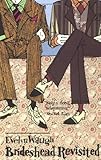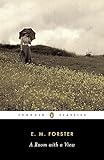 Brideshead Revisited is one of my favorite novels. I am prone to the use of superlatives, fits of florid enthusiasm, and weeping, so I have dozens of favorite novels, songs, and movies. I also have a lot of mortal enemies (mostly from the parking lot) and several best friends. Both my cats are my favorite. There are so many things to love (and loathe). Let’s say that I am catholic with my affections.
Brideshead Revisited is one of my favorite novels. I am prone to the use of superlatives, fits of florid enthusiasm, and weeping, so I have dozens of favorite novels, songs, and movies. I also have a lot of mortal enemies (mostly from the parking lot) and several best friends. Both my cats are my favorite. There are so many things to love (and loathe). Let’s say that I am catholic with my affections.
The people in Brideshead Revisited are also Catholic with their affections, but for them it means something different, namely that they are crazy. Or not crazy, exactly, but capable of nuances of feeling, infinitely tied to a class and place and time, that seem no longer to be part of anyone’s emotional spectrum. These feelings do not register on the brute psychic seismographs of today; they require some exquisite baroque device, ancient but extraordinarily sensitive, sitting under a drop cloth in a crumbling country estate. I think this is why we must read novels; we need them to exercise emotional muscles rendered vestigial by work, or poverty, or Real Housewives of Bachelor Island.
 For all that I cannot quite grasp the inevitability of breaking up with one’s lover because, ostensibly, my lapsed-Catholic father crossed himself upon his deathbed and I inherited an enormous mansion and all of the servants and furniture, I find so much to love in Waugh’s superb style that it doesn’t matter. It’s the same way with A Room With A View–I don’t understand why everyone gets so mad when they run off at the end, but I find it a delicious, uplifting read nonetheless.
For all that I cannot quite grasp the inevitability of breaking up with one’s lover because, ostensibly, my lapsed-Catholic father crossed himself upon his deathbed and I inherited an enormous mansion and all of the servants and furniture, I find so much to love in Waugh’s superb style that it doesn’t matter. It’s the same way with A Room With A View–I don’t understand why everyone gets so mad when they run off at the end, but I find it a delicious, uplifting read nonetheless.
In Brideshead Revisited, Waugh, relaxing some of the savage facetiousness of his earlier novels, allows himself to get emotional, without sacrificing a pungent sardonicism. I’ve read Decline and Fall and A Handful or Dust, and I recall them as being comic but brittle; Brideshead Revisited has laughs, but is full of a sincerity which palpitates my overwrought heart. To view the progression in his oeuvre in modern terms, Waugh is like an emotionally unavailable love interest, who wounds with bitter jokes and soothes with mixtapes and your own endless optimism. And then one day he stops messing about with humorous Tumblrs, writes the great American blog, gets a tattoo of your face, and says he wants a baby. In sum, Evelyn Waugh is your bi-curious hipster boyfriend. Maybe modern life has its own incomprehensible manners and modes of feeling.
Brideshead Revisited is mostly about things being over. Waugh embellishes his story of Charles Ryder’s lost love (Sebastian) and lost lover (Julia) with lost buildings (stuffed with soldiers, pulled down to make blocks of flats), lost generations (blown up by mortar or age, replaced by the hapless Officer Hooper), and lost lineage (the male line stymied by a déclassée widow, the great house going to the girl). Even Charles himself, an architectural painter of country houses and jungle ruins, is the chronicler of things going and gone. Like Anthony Powell, Waugh meditates on the intersection of personal and cultural loss, although each writer’s sense of humor saves his respective work from maudlin, lost-empire ruminations.
Still, out of all this wreckage, language survives–beautiful, deliberately old-fashioned language:
He told me and, on the instant, it was as though someone had switched off the wireless, and a voice that had been bawling in my ears, incessantly, fatuously, for days beyond number, had been suddenly cut short; an immense silence followed, empty at first, but gradually, as my outraged sense regained authority, full of a multitude of sweet and natural and long-forgotten sounds–for he had spoken a name that was so familiar to me, a conjuror’s name of such ancient power, that, at its mere sound, the phantoms of those haunted late years began to take flight.
Language, survives, and another thing. I don’t know why Waugh’s cast of largely unlovable characters compels me so; they are snobbish and emotionally bankrupt, unkind to one another and alienating in their privilege. But there is an obscure something in Waugh’s elegant prose that makes it greater than itself, something that breathes a real and honest sentiment into his flawed flock. Waugh names the something “a small red flame–a beaten-copper lamp of deplorable design, relit before the beaten-copper doors of a tabernacle; the flame which the old knights saw from their tombs . . . I found it this morning, burning anew among the old stones.”
It’s my vague understanding that Brideshead Revisited is supposed to be Waugh’s conversion novel, which would make this strange, value-added something Religion, or Jesus or somebody. But religion at its best is simply a permutation of love, and love, squandered and thwarted and disappointed as it is, animates Waugh’s characters and his story. I think Brideshead Revisited is a love story, and one that even dares, for all its urbane weariness, to believe in the remote possibility of a happy ending. Maybe it’s my own sentimental organ getting the better of me, projecting romance and Jeremy Irons onto fallow ground. Even if that is the case, with Brideshead Revisited, Waugh joins Philip Larkin, that other bitter wit and chronicler of loss, in proving “Our almost-instinct almost true/ What will survive of us is love.”








